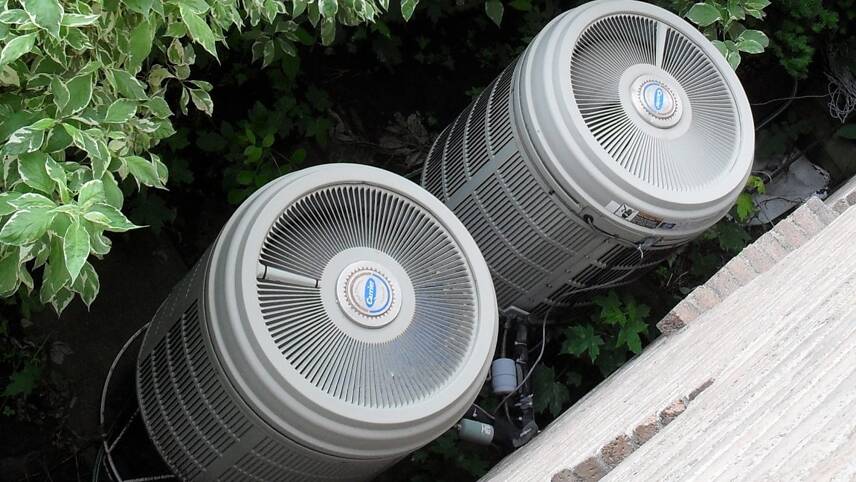You’ve reached your limit!
To continue enjoying Utility Week Innovate, brought to you in association with Utility Week Live or gain unlimited Utility Week site access choose the option that applies to you below:
Register to access Utility Week Innovate
- Get the latest insight on frontline business challenges
- Receive specialist sector newsletters to keep you informed
- Access our Utility Week Innovate content for free
- Join us in bringing collaborative innovation to life at Utility Week Live

An official for Cambridge City Council has raised concerns over a “headlong rush” towards air-source heat pumps, saying there are “lots of problems” with the technology, particularly within urban areas.
Environmental quality and growth manager Jo Dicks made the comments during a discussion of retrofitting as part of Utility Week’s Future of Heat conference.
“They have high maintenance costs; they have a lot of moving parts that can go wrong; they are external; they make a lot of noise,” Dicks explained. “There are a lot of problems that they create in an urban retrofit environment, so we need to think strongly about that before there’s a headlong rush for air-source heat pumps.”
He continued: “I think heat pumps are very, very important in the context of heat networks and on bigger properties that can accommodate a ground-source heat pump. Absolutely. They’re much more efficient. They last longer. They’re a better investment.
“But if you start with energy efficiency you can have a much greater range of sustainable solutions for retrofit.”
Dicks called for “more intense concentration” on energy efficiency, saying there should be a “fabric first” approach to the decarbonisation of heating: “Moving to something close to say a Passivhaus standard can reduce heat energy consumption in a house to about a fifth of what a normal house consumes and therefore other very, very simple technologies like direct electric heating do come into play without having a huge impact.”
Joanna Hills, a fellow panellist and director of assets and services at the Raven Housing Trust, agreed there should be a greater focus on energy efficiency.
At the same time, Hills said more consideration needs to be given to ventilation: “One of the things we really struggle with in social housing is the condensation issue and we went headlong a few years back into putting in loft insulation and cavity wall insulation, which is great. But what we did is create a terrible problem in terms of condensation and mould issues…
“Can I just put a plea out there with everything that we do with fabric, can we really take into account ventilation from the outset as a really key part of everything that we do with our heating?”
Dicks said he “wholeheartedly” agreed: “It’s vital and it’s been ignored quite a lot up until now.”
He also complained about the lack of continuity in government funding for energy efficiency retrofitting. He said their council has run some “fairly sizeable” schemes, including a programme to retrofit solid wall insulation that impacted one per cent of housing across the entirety of Cambridgeshire: “It was beginning to gain enormous momentum but at that point, the central government funding model changed very rapidly, and a lot of that momentum was lost.”
Referring to the Local Authority Delivery strand of the Green Homes Grant scheme, Dicks said Cambridge City Council has been successful in securing funding: “But what’s absolutely inherent in the government funding models at the moment is that they’re extremely short term. It’s almost impossible to set up the continuity of delivery that is required to build the confidence in the community to get things done.
“If you’re offered money for a six-month window, you can’t engage supply chains; you can’t do decent scale in procurement. It’s absolutely chaotic and actually there’s a queue of new funding initiatives which have similar timeframes queueing up and lumping on top of each other from the central government.”
He described the situation as an “initiative overload,” adding: “None of it’s very effective and it’s very difficult for local authorities to move quickly enough to really exploit that funding properly and turn it into a long-term scheme that provides value for money in this space.”
Hills concurred, saying the sentiment is “heartfelt from all of us”.
Please login or Register to leave a comment.